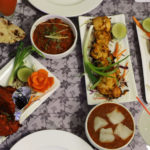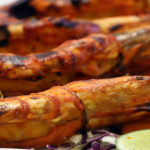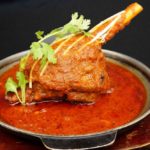Our Story
We have been around since 2006. Our team works closely with the guest like a family. We even take extra effort to customize food on special request by guest. We have took part in many big events & supplied with our traditional way of cooking. We have supplied food for 500-1000 patrons in many big events, taking care of their breakfast ,lunch & dinner. We have been serving MCCS (Mariners Cricket Club Singapore) one of our biggest customers. We came a very long way from just a stall in hawker to establishing a restaurant. We offer buffets & dine-in & island-wide delivery.

The History Of Dum Pukht
Most loved traditional Dum food since 2006
"Dum Pukht" meaning is "Dum" means to 'breathe in' and "pukht" to 'cook' slow oven cooking technique associated with Awadh region of India, in which meat seafood and vegetables are cooked over a very low flame, generally in sealed containers. The technique may be based on earlier Persian cooking methods introduced to India, it is now also commonly used in other cuisines like Mughlai, Punjabi and Hyderabadi. This is a slow-cooking method dating back to early sixteenth century Dum cooking was introduced to India by Mughal. Handi is the cookware used for Dum cooking. Dum pukht is derived from Persian meaning 'air-cooked' or 'baked'. The Dum Pukht cooking used a round heavy-bottomed pot. There are two main aspects to this style of cooking, roasting and maturing of a prepared dish. In this style of cuisine, herbs and spices play an important role. The process of slow roasting gently releases maximum flavour. The sealing of a lid of the handi wrapped with dough to achieve maturing. Cooking slowly in its juices, the food retains all its natural aromas and becomes imbued with richness of flavours that distinguishes the dish. Par-cooked food is kept in Handi with minimal amount of water. The lid is placed and sealed with a paste of flour and water. The flames are put out, leaving a bed of hot coals. The heat create the steam, the steam condenses and rolls down the curved walls. In other words, the steam is choked before it can escape, leading to the term 'Dum Pukht'
Loved by Many

















